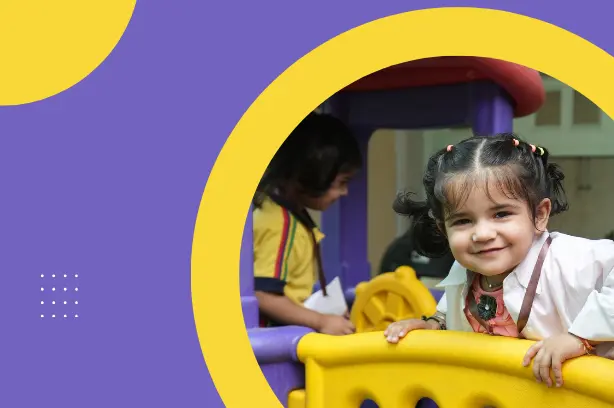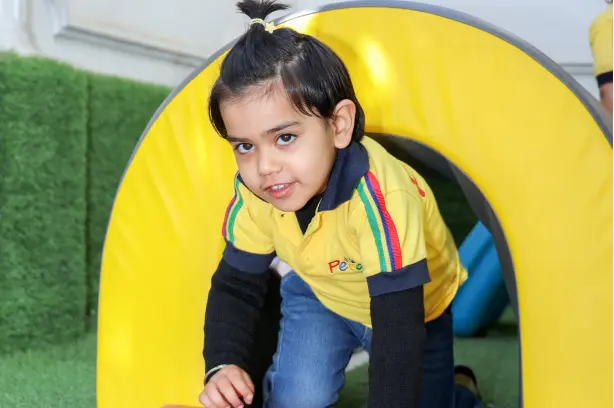03.11.2021
Introduction
Kindness is an essential trait that parents want their children to develop. It's important to teach children about kindness because it makes them better human beings and improves their mental health, happiness, and social life. This blog post will explore practical ways to encourage kindness in your child.
"What is she wearing?", "she looks so ugly," "who would want to be their friend?" we all have heard such comments by people, and worse - have heard them among children. We live in an era where everybody is judged from head to toe by everyone around us. These words can be rude, hurtful, and sometimes malicious.
As parents or carers, teaching our children the value of kindness is more important than ever.
The ethos of what it means to be a human is best exemplified through kindness.

Why is kindness such a big deal now?
Kindness is the one quality that holds everything together in a society divided by mental and physical barriers and where it's all too simple to be cruel and unfair. Being hateful is not a quality we've acquired recently. Over thousands of years, people have mistreated one another. But today, because it's too simple, quick, and anonymous, people are more critical of others for even the little things. Since our children are at the forefront of social networking and all kinds of digital content and are learning from what they see, we must teach kind habits.
"What is she wearing?" "She's so unattractive," "Who would want to be their friend?" We've all heard similar remarks, and even worse, we've heard them from children. We live in a time where everyone gets judged from head to toe by friends or strangers, and there is an open forum for these judgements to be shared. These words can be insulting, harsh, and even malevolent.
Also, developing kindness and compassion in children is a big part of their social and emotional growth that shapes their future life. Teaching them about kindness and compassion should start early because young children's mind is like a sponge - it absorbs any information it is fed.
Studies say that kids are naturally self-centred, which means that they can't put themselves in someone else's shoes or understand how their reaction affects others. However, that doesn't mean that they are naturally unkind. Here comes the role of parents and caregivers to teach them kindness correctly.
Children are hardwired to feel empathy for others and to want to assist others. Parents, carers, and teachers can use these instincts that we are all born with to encourage children to practise kindness in their daily lives.
So, how do you teach kindness to your children?
They must be taught in a developmentally appropriate manner that considers both across-age and within-age variation. Teaching children kindness is especially difficult because it is not a one-size-fits-all task. So, what works best?
Concrete actions and practical examples.
Parents and caregivers of children need to live the concept of kindness in their everyday life and perform kind acts repeatedly rather than talk about it for their children to learn it.
You can start by initiating the subject of kindness even before your kids are old enough to act kindly. Empathy is hardwired in us from birth through what's known as the mirror-neuron system, and we intuitively feel what others feel. So, building on that natural reaction, we can create scenarios where we introduce kindness and set it as the default response for them. Toddlers, for example, are very focused on me and mine, but you can encourage them to think about us and us by using inclusive language yourself. Rather than asking, "What do you want to do?" we can ask, "What do we want to do for fun?"

If empathy is understanding, then compassion is acting on that understanding. Kids' ability to do that develops a bit later. When kids are 3, 4, and 5, it's a good time to start conversations about kindness. Like, "We treat other people the way we would hope to be treated ourselves," or "You wouldn't want someone to tease you about your dress, so you shouldn't tease your classmate." Once they start understanding and acting on this behaviour, you can move on to teach them how to treat people in the way that's best for them, even if that's different from what's best for us.
And, as they say, kindness is reciprocal. Others are kind when you are kind. So, are you ready to start that conversation with your child today? Let us begin this beautiful journey of teaching kindness and creating kind and just future leaders by giving you some conversation starters.
Be kind to animals
Be kind to your planet.
Be considerate of others' feelings before you speak.
Perform little acts of kindness daily.
Try to help those in need.
Pay a compliment or give a smile to make someone's day bright.
Kindness is an intentional act where you selflessly help others.
Let's decide to be kind and make this world a better place with one effort at a time.
Explore more topics

IntroductionOver the past years, preschool education in India has witnessed a significant increase in demand. Indian parents are increasingly recognising the importance of early childhood education. T
Learn more
IntroductionEarly education in India has never been smooth. Almost over a decade ago, in 2014, the admissions in preschool reduced approximately to 50% compared to 2006. Back in 2006, around 13.46 mil
Learn more
By now, your toddler has likely enjoyed their second birthday. They're running around, picking up new words every day, and suddenly, someone asks, “Are you planning to send them to preschool?” And
Learn more
If you've ever cradled a newborn and tried to fathom the mysteries of that tiny head, you're not alone. The early years are a period when every encounter has the power to define a young mind, carving
Learn more
IntroductionPlay is the universal language of childhood, and for preschoolers, it is not just a pastime; it's a vital component of their development. In the early years of life, playtime is more than
Learn more
IntroductionJunk food constantly replaces plates full of healthy veggies or plain routine food. Studies have shown that regular consumption of junk food influences children’s preferences, making the
Learn more
Introduction Winter holds a special kind of magic for children with frosty mornings, steaming mugs of hot chocolate, the beauty of falling snow, the thrill of new adventures, and the cozy warmt
Learn more
Introduction With the rise and fall of covid-19 cases, the young ones are moving to and from between online and offline classes. As per the reports of the education team at UNESCO, it’s c
Learn more
A child's world begins long before school begins. The early years shape a child's brain most rapidly, not in primary or secondary school, but right now. Every sound, sight, and feeling mold their min
Learn more
What is a Preschool Franchise? Preschool Franchise is an unsurpassed small-scale franchise business that draws on incredible ROI (Returns on Investment). Well, before we jump to learn about the Top
Learn more